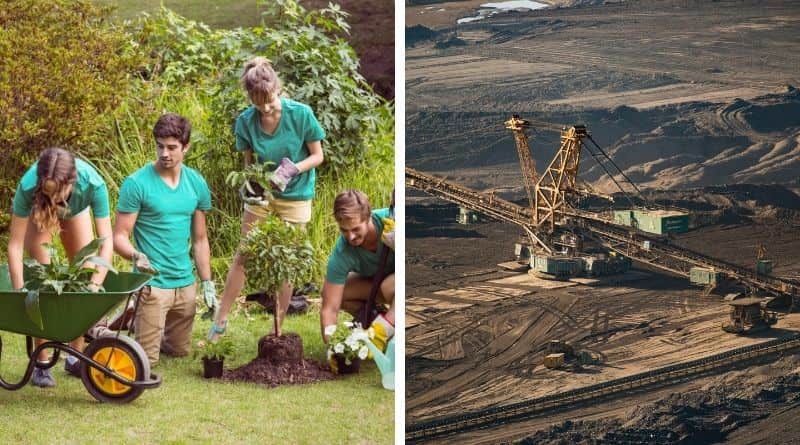Building Community To Stop Fossil Fuels

One of the most obvious fault lines exposed in COVID politics is over climate action and fossil fuels, with governments using the cover of the pandemic to push forward with polluting and destructive projects despite ever clearer evidence that a clean energy-driven recovery is the way to go, and stronger than ever demands from communities to head in that direction.
Traditional campaigning methods tend to rely on a healthy democracy, where leaders should respond to the demands of citizens. But, with climate change, that clearly is not working. The power of the fossil fuel sector is so tangled up in political power, and the disinformation and tribalism is so strong, that these methods are failing.
But what if we worked to tackle the climate crisis and the crisis in democracy together? What if we worked to confront fossil fuels by building community, and cultivating democratic engagement and participation?
That’s what our presenters at this latest webinar are doing. With amazing effect.
Julie Lyford (a director of the Green Institute board) is a local community member from Gloucester in the upper Hunter Valley who decided to confront the destruction of her home head on. With gentle but firm, painstaking work, she led the creation of amazing community networks and alliances that saw her become Mayor and, through Groundswell Gloucester and Lock the Gate, eventually can the plans to extract fossil fuels around Gloucester.
Dr Amanda Cahill, founder of The Next Economy, is one of Australia’s leading experts and practitioners in community-led economic development programs in fossil fuel extraction zones that enable and support local communities to envision and create a future beyond coal and gas. Having worked in the Latrobe, the Hunter, the Darling Downs, Central Queensland and elsewhere, Amanda will share her experiences, and why she is optimistic.
You can watch this fantastic conversation in full below.
comments
Gary Shapcott says
Julie Lyford mentioned in the webinar that house prices in Gloucester have gone up 30% since the fossil fools have been kept at bay. Caution: higher house prices >> demand for higher wages >> increased attractiveness of mining jobs!! The housing market is not our friend. The main beneficiaries of high house prices are the banks $$$, property developers $$ and real estate agents $ ... See in The Conversation .
replies
Add comment